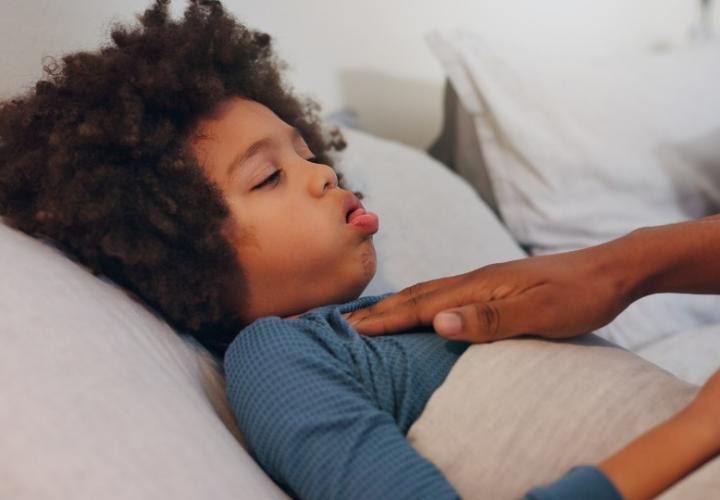Besides the hallmark sound, what are the other symptoms of whooping cough?
It usually starts with a mild cough and runny nose, like a regular cold. But then, the cough gets worse and worse, and kids might start to feel tired and feverish.
Here's what to look out for:
- A cough that gets worse over time
- Coughing to the point of vomiting or turning blue
- Runny nose
- Fever
- Difficulty breathing
Your pediatrician can diagnose pertussis with a simple nasal swab, similar to the infamous COVID test.
Is there an antibiotic for pertussis?
Yes. Your pediatrician may prescribe azithromycin, clarithromycin or erythromycin. But if it’s been going on for a while, the bacteria might have already left the body and antibiotics might not be the best option at that point.
How long are you contagious with pertussis?
Individuals with pertussis are most contagious during the first two weeks after the onset of symptoms, especially in the early stages when it feels like a mild cold. Without treatment, a person can remain contagious for up to 21 days after the cough begins. However, with appropriate antibiotics, like azithromycin, the contagious period is reduced to about five days after starting the medication.
Can my child go to school with whooping cough?
Use your judgment and ask your doctor, as you would any other illness. If they aren’t feeling well, coughing every two seconds and visibly uncomfortable, they should stay home until they start to feel better.
Remember, everyone can do their part to protect themselves and others from whooping cough!
